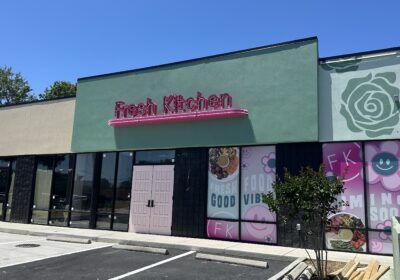SG, USF libraries bridging technology gap through laptop loan program

With the USF Library closed for the rest of the semester and all classes online, the facility’s computer lab was a big loss for students — until a laptop loan program was launched March 23.
After noticing that many students might not have reliable access to computers at home, the USF Library’s administration launched the program alongside the Tampa campus’ Student Government (SG), the St. Pete campus’ SG and Information Technology (IT).
The service started providing students who need computer access at home with laptops and webcams to complete their remote coursework.
Before the program was established, the USF Library had 97 laptops available, which were then repurposed for the program.
After SG partnered with the USF libraries, the number went up to 365 laptops available for loan across USF’s three campuses — Tampa, St. Pete and Sarasota-Manatee.
As of Tuesday morning, 79 laptops were checked out from the Tampa campus. Students have until May 12 to return the laptops.
In case a student needs to use the laptop for an extended period, Dean of USF Libraries Todd Chavez said that they can grant an extended loan.
For the program, the Tampa SG allocated approximately $35,000 of Activity and Service (A&S) Fees — students pay a flat fee of $7 per semester and $12 per credit hour — from the restricted reserves account, according to Student Body President Britney Deas.
Besides the SG funds, Chavez said the university provided additional funding by matching the total allocation from each campus.
All of the funds were used to purchase 136 units of the HP Pavilion T3 and the Lenovo I5 for the Tampa campus and 110 units of the HP Pavilion AMD for the St. Pete campus.
The average price per computer for the Tampa campus is $735, all of which contain built-in webcams and microphones. This is so students are able to participate in live lectures as well as complete proctored exams.
Chavez said the laptops purchased for the St. Pete campus were slightly less expensive than Tampa’s laptops because of when the orders were placed.
“That was not St. Pete trying to be cheap, they simply couldn’t get units that were at a higher performance level due to the availability,” Chavez said. “When the supply chain ran out, they sort of bought what they could.”
The idea of the program started when USF Provost Ralph Wilcox contacted Chavez about the USF Library providing remote services to students and faculty, especially after the university shifted to remote instruction on March 23.
During normal business operations, students were able to borrow laptops from the USF Library for a three-hour period.
While students were able to renew the loan, they would still have to return the computers on the same day and didn’t have the option to take them home.
“Since all the schools are closed, everybody’s fighting for their home computers,” Dean of Students Danielle McDonald said. “So we wanted to make sure that finances weren’t going to be another barrier to a student being able to academically complete this semester.”
To identify students eligible for the program, the Center for Academic Advocacy in Tampa and Compass Student Success Advocates in St. Pete considered three main variables: graduation, financial need and unforeseen circumstances surrounding COVID-19.
Out of the 5,502 who applied for graduation, 436 students qualified for first-round priority. For the second round, Chavez said that 996 were eligible to request a laptop.
During the first round of eligibility, students were contacted and invited to borrow a laptop on an as-needed basis while in the second round, students who are close to graduate regardless of financial need were invited to participate in the program.
Now, as the program works on its third round, students in need will be able to request a laptop on a first-come first-serve basis by contacting the USF Library.
Chavez said that despite having the loan program available to all students, it should not be used as an opportunity for an “upgrade.”
“We went for the lowest cost, sufficient laptops,” Chavez said. “They’re not high-end laptops or gaming machines. They’re pretty basic. They’re absolutely functional and they will help students with their coursework, research and so forth.”
Before the USF Library’s closure, students were able to get the laptops through a curbside pickup. Now, it has been shipping the laptops free of charge for students.
As the third week of remote classes comes to an end, McDonald said the focus of the initiative is to minimize barriers so students can “successfully complete the semester and graduation.”
“The university is going to try to support students as much as possible and to the extent that we can,” McDonald said. “What we’re trying to do is identify what could be some problems that students might be facing and then see what the university can do.
“Unfortunately, we can’t fix all of them and we can’t address all of them, but we’re really trying to help students overcome the barriers that we can.”






